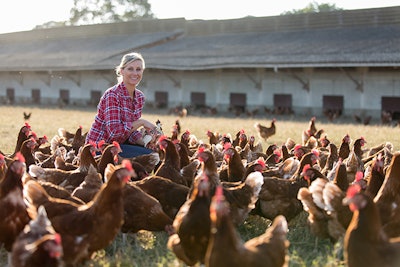
Throughout the 2000s, many consumers started caring less about specific brands and more about what a company stands for.
Today, nearly two-thirds (63%) of global consumers choose to buy goods and services from a company that shares their own values and beliefs, according to research from Accenture.
The term conscious capitalism was first coined by Whole Foods CEO John Mackey in 2013. Companies that embrace the conscious capitalism concept believe that when practiced consciously, business elevates humanity.
“Conscious capitalism is a way of thinking about business and capitalism that emphasizes the human nature of these endeavors,” explained Alexander McCobin, the CEO of Conscious Capitalism, Inc. “It starts from the premise that business is a force for good and there is a way to practice business that elevates humanity through our work.”
The 4 tenets of conscious capitalism
The philosophy is rooted in four tenets:
- Higher purpose: businesses should exist for reasons beyond making a profit.
- Stakeholder orientation: conscious businesses value and care for all stakeholders involved, including customers, employees, investors, communities, suppliers and the environment.
- Conscious leadership: conscious leaders focus on “we,” rather than “me.”
- Conscious culture: the culture of a business is its heartbeat. Without a healthy one, businesses ultimately fail.
The concept is different than corporate social responsibility (CSR). Both models encourage companies to be socially accountable. However, CSR usually takes place after a profit has been made, while conscious capitalism is rooted in a company’s philosophy from the start.
“The idea is that businesses should be run in such a way that they create so much value for everyone they touch in the productive process so that there's no need to give back afterwards,” McCobin said.
A holistic approach to poultry farming
Austin Texas-based Vital Farms, one of the largest suppliers of pasture-raised eggs in the U.S., has embraced the conscious capitalism model.
“We are growing very fast, but more important than growth is doing it right. Taking care of our stakeholders is paramount to what we do. It’s in the fabric of our company. We talk about it all the time,” Matt O’Hayer, Executive Chairman of Vital Farms, told Conscious Company. “The vendors, our farmers, the hens — they are all part of our stakeholder model.”
Like what you just read? Sign up now for free to receive the Poultry Future Newsletter
















